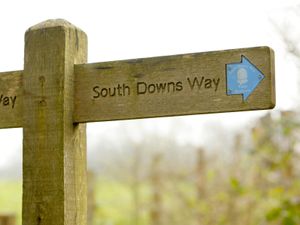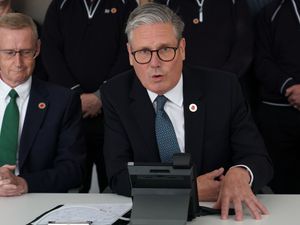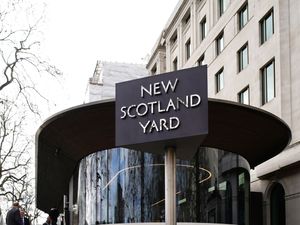South Downs National Park launches green investment scheme to boost biodiversity
The park authority has earmarked 500 hectares of land on farms and country estates to be transformed through green finance investment.

The South Downs National Park has become the first in the country to launch a scheme to enable businesses to invest in “high-ethic, effective nature recovery” with the aim of boosting biodiversity.
The authority for the national park, which stretches from Winchester in Hampshire to Eastbourne in East Sussex, has earmarked 500 hectares – the equivalent of 800 football pitches – of land on farms and country estates to be transformed through green finance investment.
The voluntary biodiversity credits scheme will include monitoring of the investments to avoid any double counting or greenwashing.

Tim Slaney, interim chief executive at the South Downs National Park Authority (SDNPA), said: “This is a first for UK national parks and underlines our commitment to tackling the biodiversity crisis through innovation.
“We have a real opportunity in the UK to turn the tide on nature depletion, as well as tackle the climate crisis through nature-based solutions, but we’ve got to act quickly and decisively.
“With national parks covering almost 10% of England’s land mass, places like the South Downs National Park can, and should be, the driving force behind nature recovery.
“In the UK, 41% of species have declined in abundance over the past 40 years, so we’re at a pivotal moment.
“There is now a real appetite across the corporate sector to demonstrate first-class environmental integrity, meet national targets and invest in the planet for future generations and that’s exactly what voluntary biodiversity credits can deliver.
“National parks have to seize this moment and capitalise on this tremendous opportunity to enable nature to bounce back.”

The green credits scheme is the latest stage in the park authority’s ReNature campaign to create 13,000 acres of new land for habitats to form.
The aim is to ensure that 33% of the national park is managed for nature by 2030, while the remaining 67% is nature-friendly.
Mr Slaney added: “This growing desire to invest in the environment dovetails with an ever-expanding need in the land and farming sector to diversify and find new revenue streams.
“Both sectors can work harmoniously together and national parks can be the facilitator.
“Our aim is to work with landowners to support them in their aspirations to deliver high-quality, nature-friendly food production on their best farming land and devote their more marginal land to nature where the costs associated with it are prohibitive.
“This is just the start of this journey and we’re excited about what can be achieved for nature in the next few years.”
The park authority is working with tech company Earthly to help find investors and monitor the scheme.
A spokesman for the park said: “A bespoke Section 106 legal agreement will secure land use change – from agriculture to nature recovery – through an agreement between the landowner and the national park authority as local planning authority (LPA).
“This secures land for ReNature over the long term and ensures the landowner can sell nature recovery credits to businesses, and developers without additional workload or cost.
“Once secured, Earthly will take on the crucial role of authoriser, ensuring avoidance of greenwashing, double counting or duplications in sales, while the SDNPA will be responsible for compliance monitoring.”
Lorenzo Curci, co-founder of Earthly, said: “With the UK already ranking among the most nature-depleted regions globally, initiatives like this are paramount.
“As we strive to meet the ambitious 2030 goals set by the Government, it’s imperative that our efforts are both quantifiable and transparent, guided by the latest scientific advancements.”





